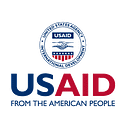Get to Know: CATALYZE EduFinance
The USAID CATALYZE EduFinance Activity (September 2019–2027) uses a blended finance approach — the strategic use of USAID funds and private capital — to improve and sustain learning outcomes for children and youth globally, particularly those most vulnerable. By mobilizing private sector capital, particularly for non-state schools and education enterprises, EduFinance is addressing a substantial global funding gap in education, estimated to be $148 billion annually by UNESCO in 2020. The Activity aims to:
- Mobilize private capital via blended finance activities, particularly for the non-state education sector.
- Increase access to education for learners, especially the economically marginalized and disadvantaged.
- Improve and sustain learning outcomes.
- Mitigate the economic and learning impacts of COVID-19 on the non-state education sector.
Learning and evidence building
A key component of USAID CATALYZE is to contribute to USAID’s understanding of designing and implementing blended finance programs across sectors. CATALYZE EduFinance contributes to this understanding through a formalized learning agenda and a systematic approach to building and communicating a multi-layered evidence base around finance and non-state education that draws from country- and global- level public and private sector perspectives. The evidence measures the efficacy of non-state education approaches and how education finance increases access to, and equity in, education. The EduFinance evidence base aims to inform investment, policy development, and program design decisions on non-state education for host-country governments and ministries, financial institutions (FIs), non-state school owners, families of learners, as well as governments globally.
Geographic coverage
CATALYZE EduFinance pilots multiple models in 14 countries across USAID’s Latin America and the Caribbean (LAC), Sub-Saharan Africa, Middle East and North Africa (MENA), and Asia regions.
EduFinance supports local education stakeholders in state and non-state education through multiple thematic areas:
- Early Childhood Development (ECD) and early childhood care and education (ECCE): Democratic Republic of the Congo (DRC), Rwanda, South Africa, Tanzania, Dominican Republic, El Salvador, Guatemala, Haiti, Paraguay, India, Iraq
- Primary education: DRC, Zambia, Dominican Republic, Guatemala, Haiti
- Secondary education: DRC, Tanzania, Dominican Republic, Haiti, Iraq
- Workforce development: Rwanda, Tanzania, El Salvador, Paraguay, Iraq
- Policy / enabling environment: Zambia
- Market Assessment: Kenya, Somalia
Through these activities, EduFinance supports critical crosscutting themes, such as gender integration and youth workforce development. For example, in the ECD and ECCE space, many of the center owners and operators are women who benefit from technical assistance and increased opportunities to direct financing. In the youth workforce development space, for example, EduFinance Rwanda is offering financing for technical and vocational education and training (TVET) institutions to improve and expand their offerings, as well as income-share agreements directly to youth who otherwise would be unable to finance their higher education.
Key activities and results to-date
- In South Africa, EduFinance signed investment agreements totaling $2.05 million for investment facility to lend to non-state ECD centers. Implementing partner Kaizenvest also committed $26,703 of its own funds to eight ECD centers serving low- and lower-middle income families.
- In Rwanda, EduFinance signed a Memorandum of Understanding with the Rwandan Ministry of Education to implement EduFinance activities with non-state schools.
- In DRC, EduFinance developed 16 EduFinance loan products (nine school improvement loan and seven school fee loan products) for nine FI partners and delivered staff trainings for eight FI partners; signed technical assistance agreements with five additional FI partners; and enrolled 281 school partners in the EduQuality program, which provides school development planning support and professional development training for school leaders and teachers.
- In Zambia, EduFinance developed 11 loan products (six school improvement loan and five school fee loan products) for six FI partners; delivered staff trainings to six FI partners; and enrolled 177 school partners in the EduQuality program.
- In Tanzania, EduFinance developed seven EduFinance loan products (four school improvement loan and three school fee loan products) for four FI partners and delivered staff trainings to four partners.
- EduFinance signed technical assistance agreements with 11 financial institutions across the Dominican Republic, Guatemala, and Haiti to partner with CATALZE EduFinance.
- In Paraguay and El Salvador, EduFinance is supporting five vocational schools to establish an income-generating, student-run business attached to each school to strengthen their capacity to deliver entrepreneurial education to youth and establish income-generating businesses that will both build the entrepreneurial skills of youth and establish a revenue stream for the school.
- EduFinance conducted 15 Market Assessments in countries across Sub-Saharan Africa and LAC regions, surveying public- and private- sector country stakeholders on critical education and finance challenges and opportunities as part of the Activity design and co-creation process with USAID Missions and host-country governments. EduFinance also conducted a global landscape assessment of ECCE. Additional needs assessments are currently being developed in India and Iraq.
- EduFinance supported the launch of a Community of Practice, the Education Finance Network (EFN), which convenes a diverse network of global education finance stakeholders focused on leveraging non-state resources to create inclusive, high-quality education systems. The EFN has held four global events and produced knowledge products that contribute to evidence building, including its Evidence Gap Map, which aims to make education research around non-state actors more accessible.
About USAID CATALYZE
USAID CATALYZE, implemented by Palladium, is an 8-year program designed to mobilize $2 billion in private capital for development impact, especially in underserved social sectors and frontier markets across the globe. CATALYZE supports blended finance solutions working with local and international businesses and investors to explore and find commercially-viable opportunities and approaches to creating jobs, developing sustainable social services, tightening and rationalizing supply chains, and advancing inclusive growth. We work across 28 countries in Asia, Africa, Europe, Latin America, and the Caribbean, with 190 partners, including financial institutions, business advisory service providers, anchor firms, and job trainers.
